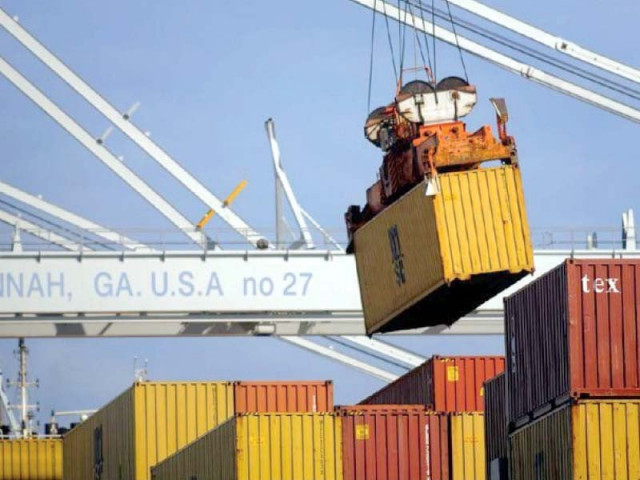Revised import control plan devised
Govt mulls over increasing regulatory duties up to 100% to ease pressure on rupee

The government has prepared a revised plan to reduce imports by nearly one billion dollars a month through a combination of tariffs and non-tariff measures, as it considers increasing regulatory duties up to 100% to slow down the imports.
Finance Minister Miftah Ismail on Tuesday chaired another meeting to review the set of options crafted by the Ministry of Commerce and the Federal Board of Revenue (FBR) to reduce the import bill.
The meeting was informed that imports could be reduced by close to $1 billion, or about 15% of the total monthly imports, if the regulatory duties were substantially increased.
The plan’s implementation is subject to the nod of Prime Minister Shehbaz Sharif. Pakistan may also have to take the International Monetary Fund (IMF) on board before its enforcement.
The goods that could see a surge in their import cost are consumer products, tyres, all types of home appliances, power generation machinery, general machinery, steel products, cars including completely built units and their parts, ceramics, mobile phones, and polypropylene.
Authorities have prepared the import compression plan by excluding energy, food, and export-oriented sectors to avoid any adverse impact.
However, the finance minister has suggested reducing the proposed duties on certain items and revising the plan accordingly before it is shared with the prime minister.
The meeting took place hours before a Pakistani delegation left for Doha to hold review talks with the IMF. The finance minister will kick in talks from Pakistan but will join the delegation early next week.
The outcome of the talks, expected by May 25, will determine whether the country can achieve short-term economic stability. The country’s capital and exchange markets have been adversely hit by indecisiveness, resulting in devaluation of nearly Rs10 since the PML-N-led government came to power.
The rupee on Tuesday fell to another record low at Rs195.74 to the dollar in the inter-bank market and traded close to Rs200 to the dollar in the open market amid increasing demand for the greenback for imports and due to political uncertainty.
Prime Minister Shehbaz Sharif has directed the economic managers to cut the import bill by $2 billion a month, or over one-fourth, but the finance minister is of the view that the economy should not be completely suffocated.
Imports stood at $6.6 billion in April 2022 while in the first 10 months of current fiscal year, the imports reached a record high at $65.5 billion. They can increase to $77 billion by the end of June.
The meeting discussed banning the import of more than 80 consumer goods being imported by the departmental stores but their impact would not be more than $70 million, according to the officials.
The current account deficit has already ballooned to $13.2 billion in nine months of the current fiscal year and it is estimated to widen to $17 billion to $18 billion by the end of the year if no corrective measures were taken.
The authorities’ initial plan suggested that the government could increase the regulatory duties on imports of tryes to 50%. Machinery imports may see up to 10% regulatory duties and home appliances like air conditioners and refrigerators can attract 50% regulatory duties.
The power generation machinery may be subject to 30% regulatory duty and steel products may face 10% duty.
Cars of over 1,8000cc may be slapped with 100% regulatory duties and 35% additional customs duty over and above the prevailing rates.
Up to 40% of regulatory duties can be imposed on ceramics while the regulatory duties on mobile phones could be doubled to discourage their imports.
The government’s macroeconomic framework suggested that it had a plan to cut the current account deficit to $10 billion in the next fiscal year.
Effectively, Pakistan’s gross foreign exchange reserves are negative amid the coalition government’s inability to take tough decisions timely, mainly the increase in petroleum product prices.
The Ministry of Commerce has also separately reviewed the items whose imports can be curtailed through non-tariff barriers, said the sources.
Published in The Express Tribune, May 18th, 2022.
Like Business on Facebook, follow @TribuneBiz on Twitter to stay informed and join in the conversation.





1710175205-0/image-(9)1710175205-0-208x130.webp)













COMMENTS
Comments are moderated and generally will be posted if they are on-topic and not abusive.
For more information, please see our Comments FAQ